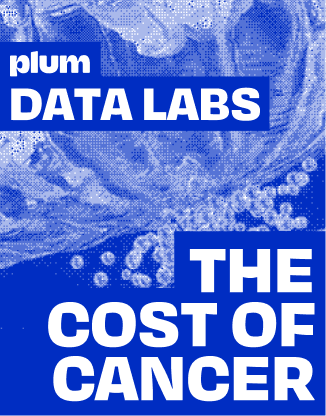Performance reviews have undergone a significant transformation in today's dynamic workplaces. This evolution is shaped by a shifting landscape, demanding more strategic, employee-centric, and technology-driven approaches to evaluating and managing performance. In this comprehensive exploration, we delve into the impact of modern performance reviews, examining their evolution, alignment with organizational goals, the role of continuous feedback, incorporation of employee development, the influence of technology, addressing challenges, impact on employee engagement, customization, measurement of effectiveness, and future directions.
Evolution of Performance Reviews in the Workplace
Traditional performance reviews often followed an annual, rigid structure, providing a snapshot of an employee's achievements and areas for improvement. The modern approach, however, emphasizes ongoing, dynamic assessments. The evolution is driven by the need for agility, adaptability, and a deeper understanding of employee contributions beyond quantitative metrics. The evolution of performance reviews in the workplace represents a transformative journey from the rigid structures of traditional assessments to the dynamic and ongoing approaches of the modern era. This evolution is deeply rooted in the recognition of the need for agility, adaptability, and a nuanced understanding of employee contributions that goes beyond the confines of quantitative metrics.
Current Trends in Employee Evaluation
Contemporary employee evaluation practices emphasize holistic assessments that go beyond job roles. Current trends include a focus on soft skills, contributions to team dynamics, and alignment with organizational values. The shift is towards a more comprehensive understanding of an employee's impact on both immediate tasks and broader organizational objectives.
Aligning Performance Reviews with Organizational Goals
Aligning performance reviews with organizational goals is crucial for ensuring that individual efforts contribute to the broader success of the company.
Linking Employee Performance to Business Objectives
Modern performance reviews go beyond individual tasks to link employee performance directly to strategic business objectives. This alignment ensures that every employee's contributions support the overall mission and vision of the organization.
Strategic Use of Reviews for Organizational Growth
Performance reviews are leveraged strategically for organizational growth. Insights gained from employee evaluations guide talent management strategies, helping organizations identify and nurture high-potential individuals, streamline processes, and adapt to changing market dynamics.
The Role of Continuous Feedback
Shifting from annual to ongoing performance reviews and embracing continuous feedback are pivotal changes in modern performance management.Shifting from annual to ongoing performance reviews and embracing continuous feedback are pivotal changes in modern performance management. This transition acknowledges that feedback is not just a periodic event but a continuous process that shapes employee development and organizational success.
Shifting from Annual to Ongoing Reviews
The traditional model of annual reviews is giving way to continuous, real-time feedback. This shift allows for more immediate course corrections, recognizes achievements promptly, and fosters a culture of ongoing learning and improvement.
Benefits of Regular, Constructive Feedback
Regular feedback provides employees with a clearer understanding of expectations and areas for improvement. It contributes to enhanced job satisfaction, employee engagement, and the overall professional development of individuals within the organization.
Incorporating Employee Development into Reviews
Modern performance reviews integrate employee development seamlessly, emphasizing not only past performance but also future growth opportunities.This holistic approach reflects a strategic commitment to nurturing talent and ensuring that each employee's journey aligns with both individual aspirations and the evolving needs of the organization.
Focusing on Career Growth and Learning Opportunities
Performance reviews are now platforms for discussing career growth and learning opportunities. Managers and employees collaboratively plan development paths, ensuring that individual aspirations align with organizational needs.
Balancing Performance Assessment with Developmental Needs
The dual focus on performance assessment and developmental needs ensures that employees not only meet current job requirements but also acquire skills that prepare them for future challenges, contributing to their long-term success within the organization.
Technology and Data in Enhancing Review Processes
Technology plays a crucial role in enhancing the efficiency, transparency, and objectivity of modern performance reviews.From automated systems streamlining data collection to analytics providing insightful metrics, the integration of technology ensures that reviews are not only a reflective process but also a data-driven strategy for informed decision-making and continuous improvement.
Leveraging HR Tech for Efficient Reviews
Modern performance reviews leverage Human Resources (HR) technology to streamline processes. Automated systems facilitate smoother evaluations, timely feedback, and data-driven insights, freeing up valuable time for managers and HR professionals.
Data-Driven Insights for Objective Evaluations
The integration of data analytics in performance reviews provides objective insights. These insights enable more accurate assessments, identify patterns, and contribute to evidence-based decision-making, reducing the influence of bias in evaluations.
Addressing Challenges in Modern Performance Reviews
While modern performance reviews bring numerous benefits, challenges such as bias, subjectivity, and ensuring fairness need to be proactively addressed. Implementing training programs on unconscious bias, establishing clear evaluation criteria, and fostering a culture of openness and transparency are essential steps organizations can take to mitigate these challenges and ensure a more equitable and objective review process. Continuous efforts in addressing these issues contribute to the overall effectiveness and credibility of modern performance management practices.
Overcoming Bias and Subjectivity
Modern performance reviews employ various strategies to overcome bias, including diverse evaluation panels, standardized evaluation criteria, and unconscious bias training for managers. These measures ensure fair and equitable assessments.
Ensuring Fairness and Transparency in Evaluations
Transparent communication about evaluation criteria and expectations, coupled with well-defined processes, fosters fairness. Open dialogue between managers and employees contributes to a transparent review experience.
Employee Engagement and Morale
Modern performance reviews play a pivotal role in influencing employee engagement and morale, impacting overall workplace satisfaction.By fostering an environment of open communication, recognizing individual contributions, and providing opportunities for professional growth, organizations create a positive feedback loop that not only boosts morale but also cultivates a motivated and engaged workforce, contributing to a vibrant and thriving workplace culture and sustained success.
Impact of Reviews on Employee Satisfaction
Positive, constructive feedback in the performance reviews contributes to higher employee satisfaction. Recognizing achievements and providing opportunities for improvement fosters a sense of value, motivating employees to contribute actively to the organizational goals.
Creating a Positive Review Experience
The review experience is crucial for employee morale. Modern approaches emphasize creating a positive atmosphere during reviews, encouraging open communication, and ensuring that employees feel heard, valued, and supported in their professional development.
Customization and Flexibility in Review Systems
Acknowledging the diverse needs of a modern workforce, performance review systems are increasingly tailored to accommodate individual differences. This personalized approach not only ensures that evaluations resonate with unique roles and contributions but also fosters a sense of inclusivity, empowering employees to thrive in an environment that recognizes and respects their distinct strengths and aspirations.
Tailoring Reviews to Diverse Workforce Needs
Modern performance reviews recognize the unique strengths and challenges of each employee. Customization ensures that evaluations consider individual roles, skills, and contributions, creating a more inclusive and equitable assessment process.
Adapting Review Processes in Changing Work Environments
In a rapidly changing work environment, performance reviews need to be adaptable. Modern systems are designed to flexibly accommodate remote work, changing job roles, and evolving organizational structures, ensuring relevance in dynamic settings.
Measuring the Effectiveness of Performance Reviews
To gauge the impact of performance reviews, organizations deploy key metrics and indicators of success. These metrics may include employee engagement scores, retention rates, and the alignment of individual goals with organizational objectives, providing valuable insights into the overall effectiveness of the performance management process and its positive influence on both individual and organizational levels.
Key Metrics and Indicators of Success
Effectiveness is measured through metrics such as employee engagement scores, retention rates, and achievement of organizational goals. These indicators reflect the positive influence of performance reviews on both individual and organizational levels.
Feedback and Continuous Improvement of Review Processes
Gathering feedback from both managers and employees allows organizations to continuously refine and improve their review processes. Regular assessments of the review system ensure that it remains aligned with organizational objectives and employee expectations.
Future Directions in Performance Management
As organizations navigate the future of work, performance management is poised to undergo further transformation. Anticipating trends such as the integration of artificial intelligence (AI) in performance analytics, a greater focus on employee well-being, and the continual shift towards skills-based evaluations, forward-thinking companies are preparing to embrace innovative strategies that align with the evolving nature of work. Embracing these future directions ensures that performance management remains a strategic driver for organizational success in an ever-changing landscape.
Emerging Trends and Innovations
Emerging trends include the use of artificial intelligence (AI) in performance analytics, gamification elements in reviews, and a heightened emphasis on employee well-being. These trends signify a continuous evolution towards more sophisticated and employee-centric performance management practices.
Preparing for the Future of Work
The future of work, marked by increased automation, remote collaboration, and a focus on skills rather than traditional job roles, requires performance management to be agile. Organizations are preparing by adopting innovative tools and methodologies to stay ahead of the curve.
Conclusion
The evolving role of performance reviews in modern workplaces reflects a paradigm shift towards employee-centric, technology-driven, and strategically aligned evaluation processes. From continuous feedback and developmental focus to leveraging technology for efficiency, organizations are adapting their performance management practices to meet the demands of a dynamic workforce. As we move forward, the positive impact of these changes is evident in increased employee satisfaction, enhanced engagement, and a workforce that is better equipped for the challenges of the future of work. The journey towards effective performance management is ongoing, and organizations that embrace innovation and flexibility are well-positioned to thrive in the ever-changing landscape of the contemporary workplace.
.avif)










.avif)














